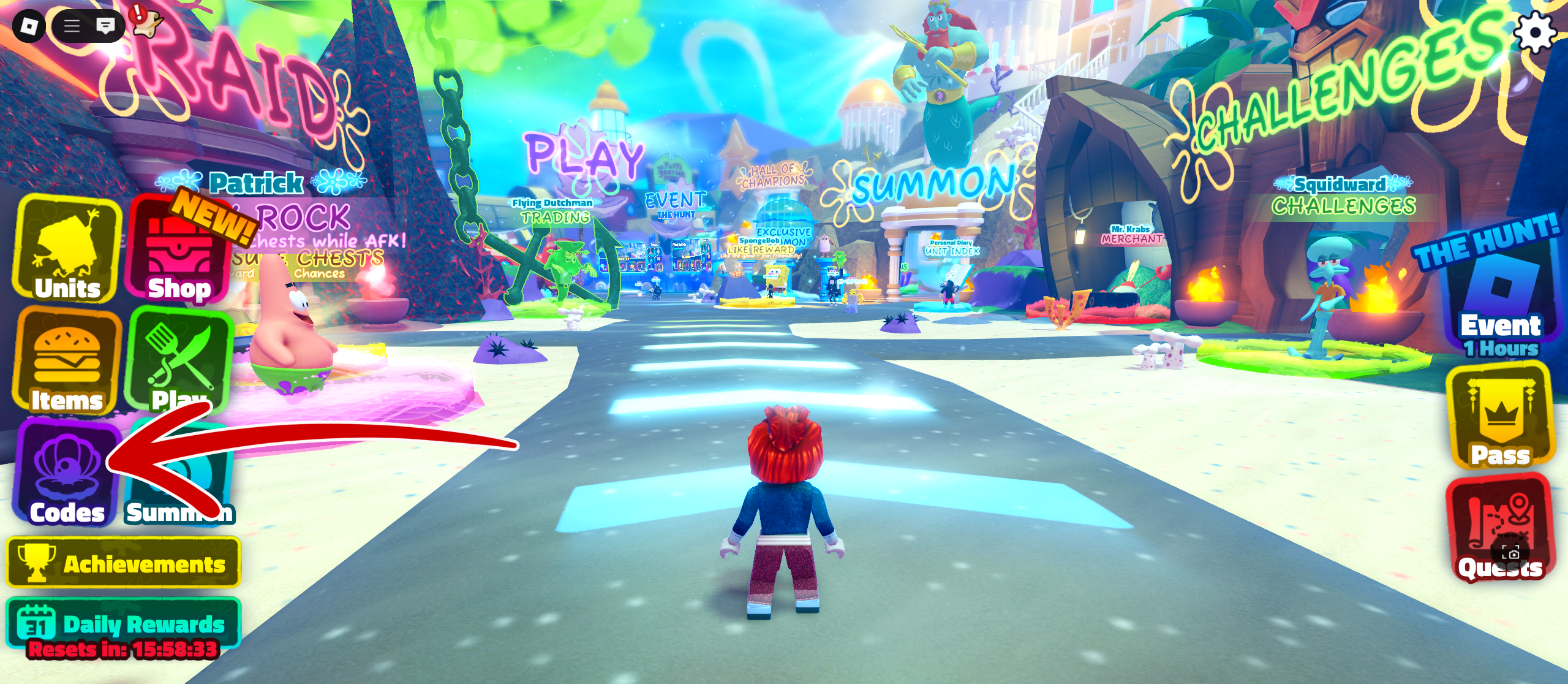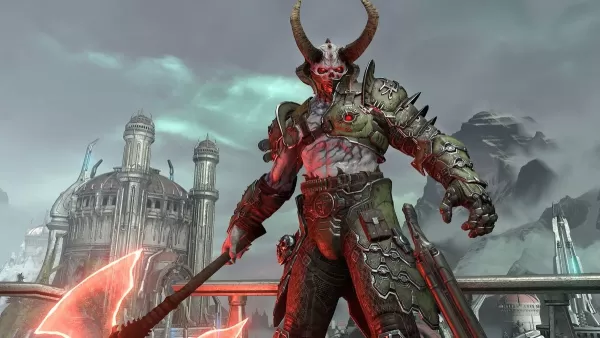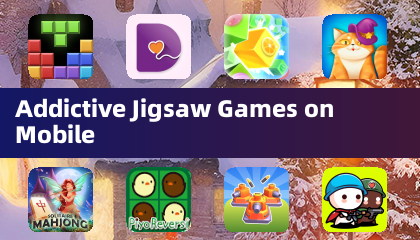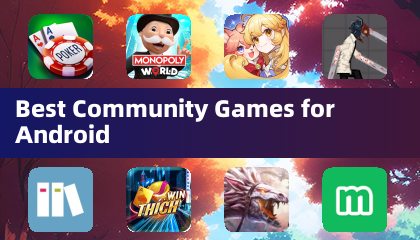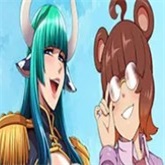The early days of Will Wright's iconic life simulation games were filled with charming details, immersive mechanics, and quirky surprises that later entries have left behind. From deeply personal memory systems to unique NPC interactions, these lost features helped define the magic of the originals. As the series evolved, many of these beloved elements faded into obscurity. In this article, we'll take a nostalgic look back at the forgotten gems of the first two games — features that fans still miss and wish would make a return.
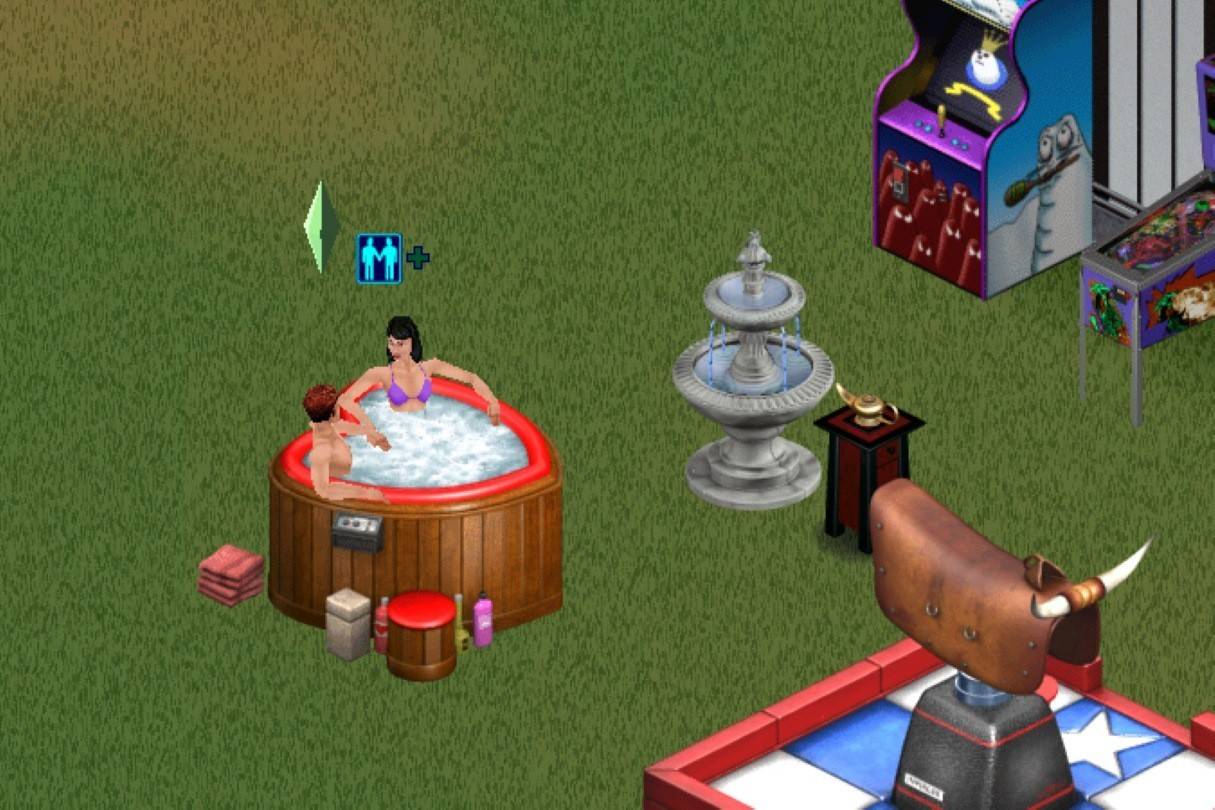 Image: ensigame.com
Image: ensigame.com
Table of Content ---
- The Sims 1
- Authentic Plant Care
- Can’t Pay, Can’t Eat!
- A Genie’s Unexpected Gift
- The School of Hard Knocks
- Realistic WooHoo
- Fine Dining
- Thrills and Spills
- The Price of Fame
- Spellcasting in Makin’ Magic
- Singing Under the Stars
- The Sims 2
- Running a Business
- Higher Education, Higher Rewards
- Nightlife
- The Excitement of Apartment Life
- Memories That Last, Love That Doesn’t
- Functional Clocks
- Shop ‘Til You Drop
- Unique NPCs
- Unlocking Hobbies
- A Helping Hand
0 0 Comment on this The Sims 1
Authentic Plant Care
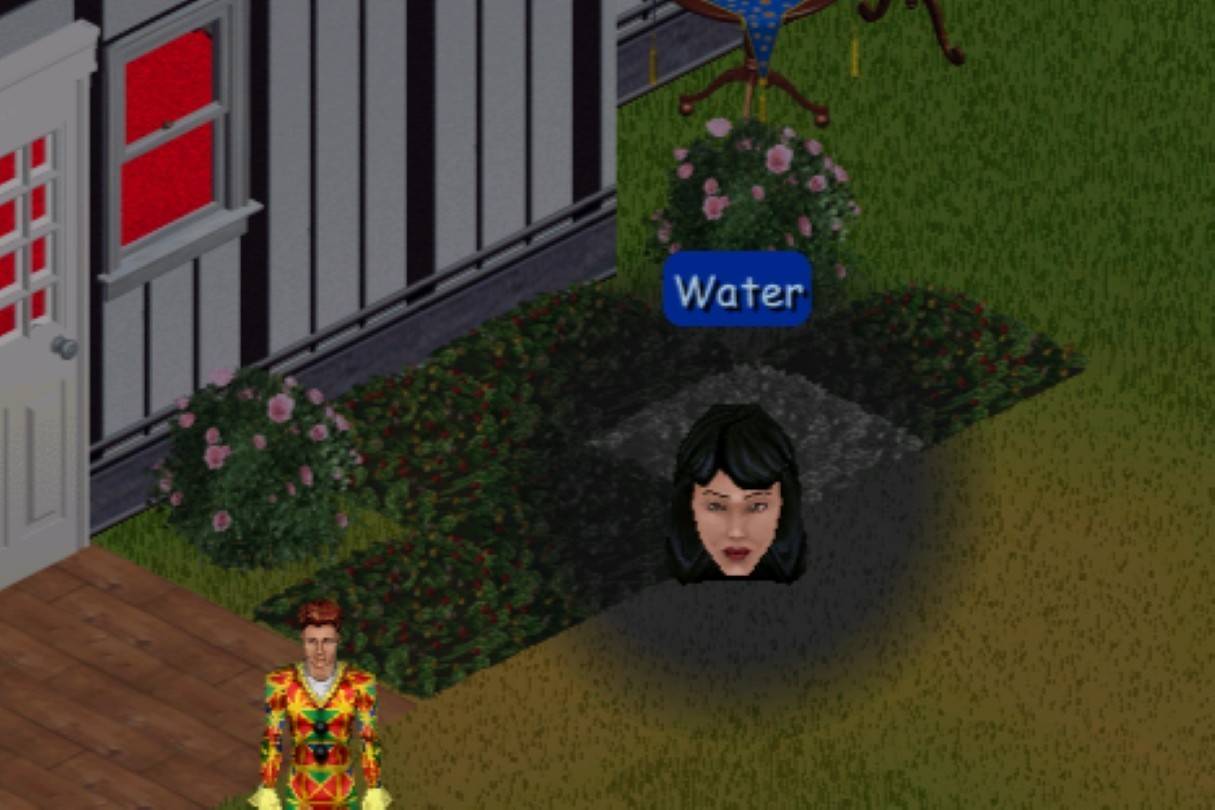 Image: ensigame.com
Image: ensigame.com
In the original game, certain indoor plants required regular watering to stay healthy. Neglecting them for too long would cause them to wither, affecting the home's aesthetics and lowering the "Room" need, subtly encouraging players to maintain their living spaces.
Can’t Pay, Can’t Eat!
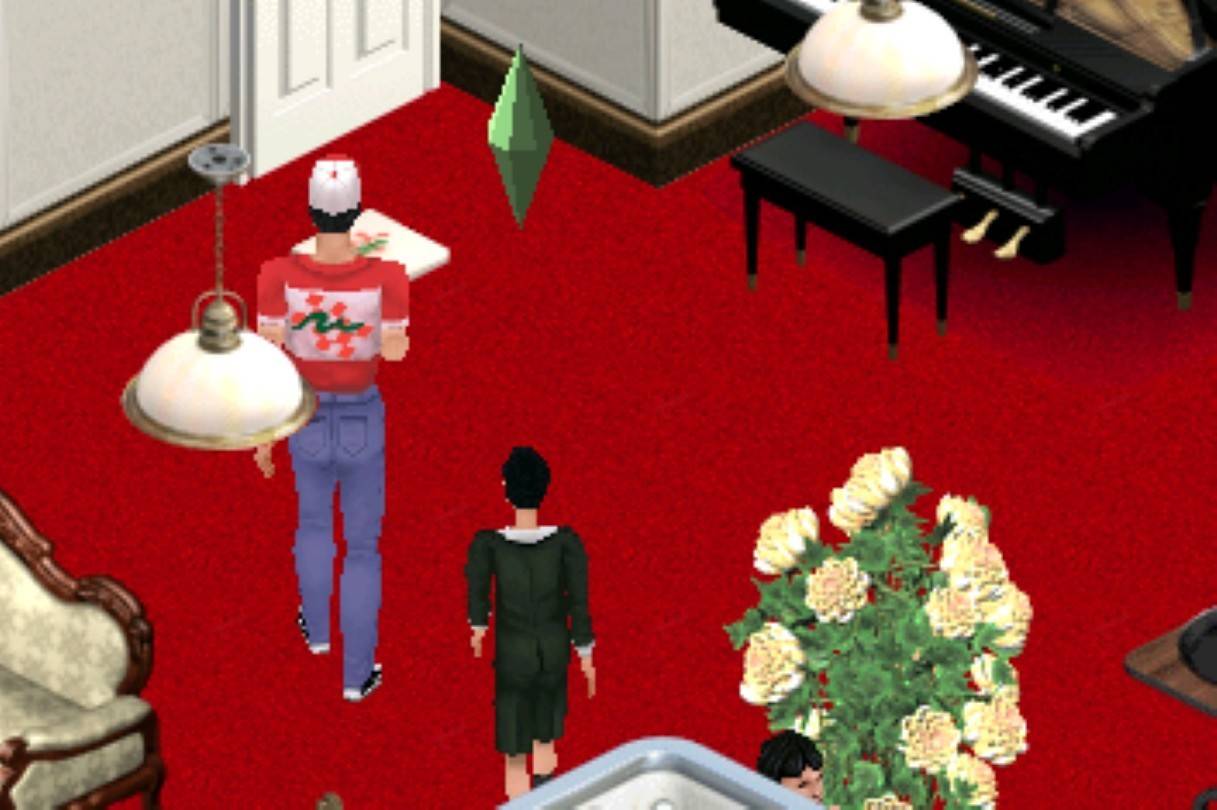 Image: ensigame.com
Image: ensigame.com
Freddy, the pizza delivery man, would become visibly frustrated if your Sim couldn’t afford to pay for their order. Instead of simply leaving, he would reclaim the pizza and walk away.
A Genie’s Unexpected Gift
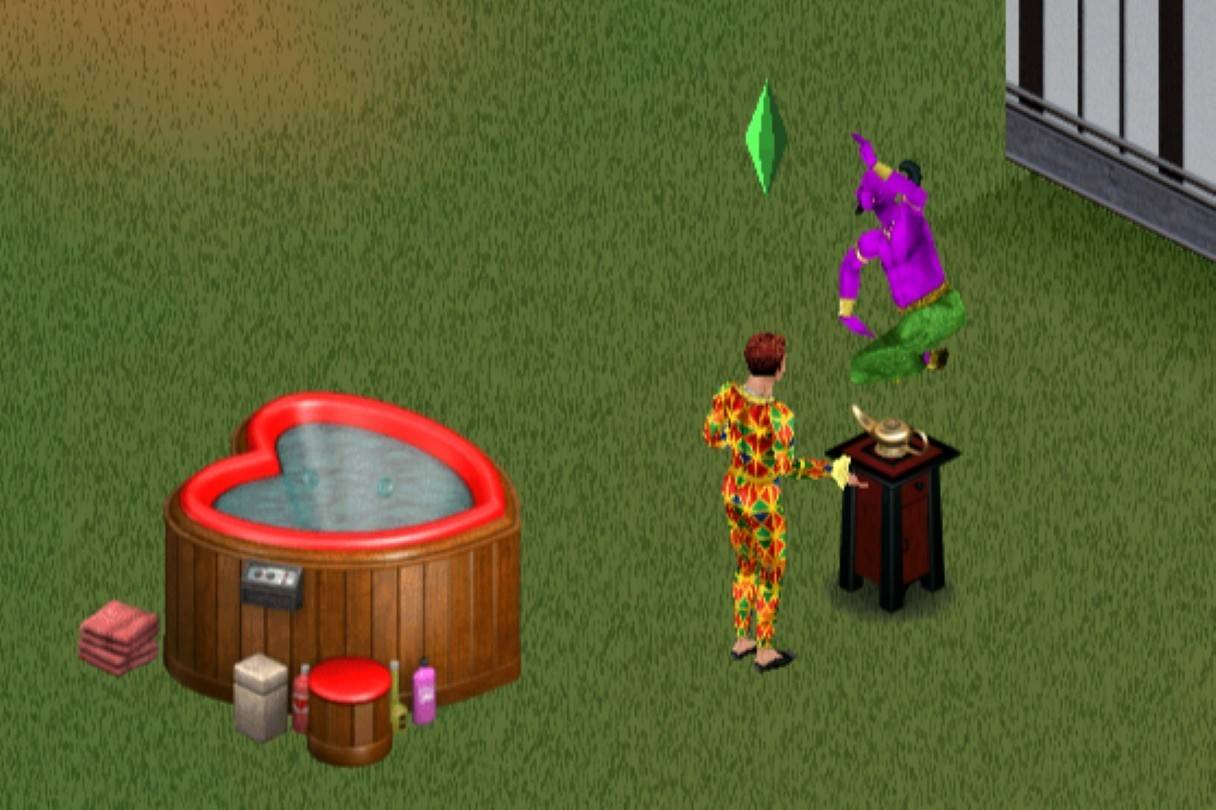 Image: ensigame.com
Image: ensigame.com
The genie lamp, a magical item in the game, could be used once a day, offering a range of wishes with indefinite effects. However, one surprising outcome occurs when the player chooses the "water" wish. Instead of a basic water-related boon, there was a rare chance that the genie would reward the player with a luxurious hot tub, adding an unexpected twist to gameplay, especially during challenges like the rags-to-riches scenario.
The School of Hard Knocks
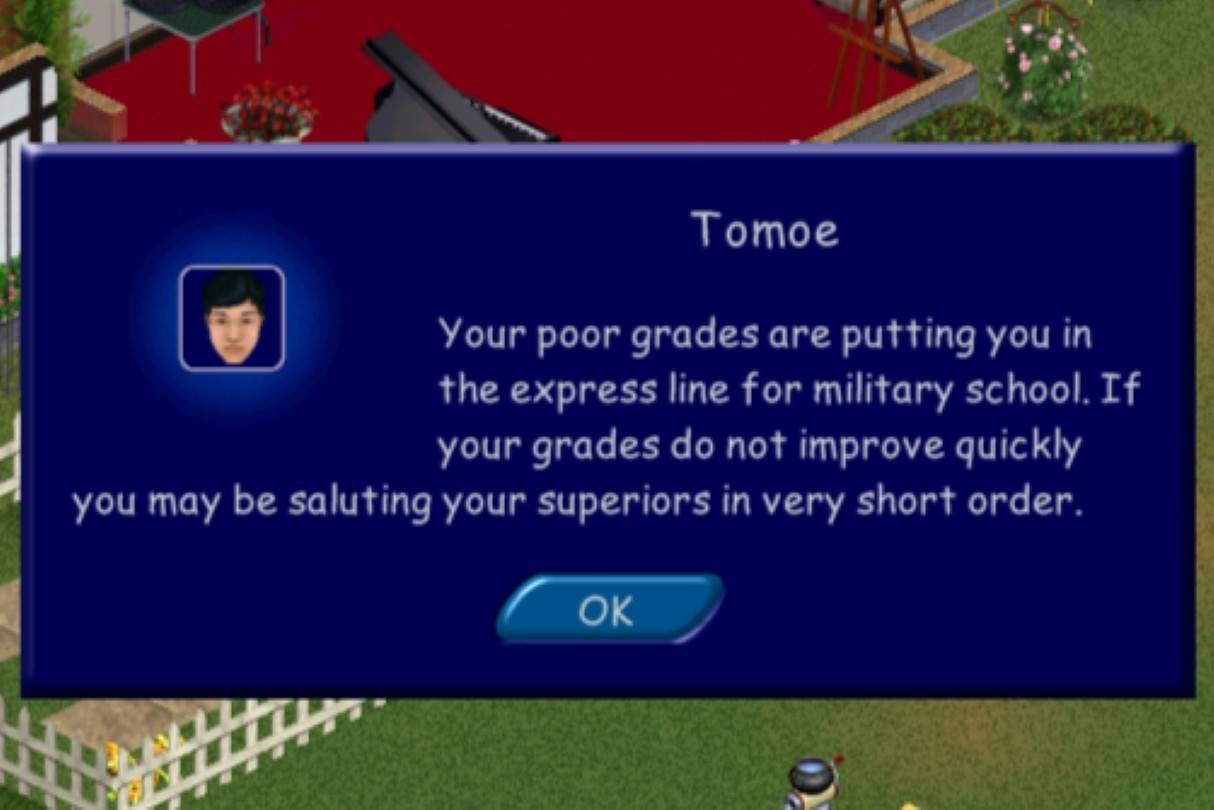
Education played a significant role in the lives of Sims, affecting their future and immediate circumstances. Sims who excelled in school were often rewarded with monetary gifts from their grandparents. Conversely, those who struggled academically faced harsher consequences, such as being sent off to military school, effectively removing them from the household permanently.
Realistic WooHoo
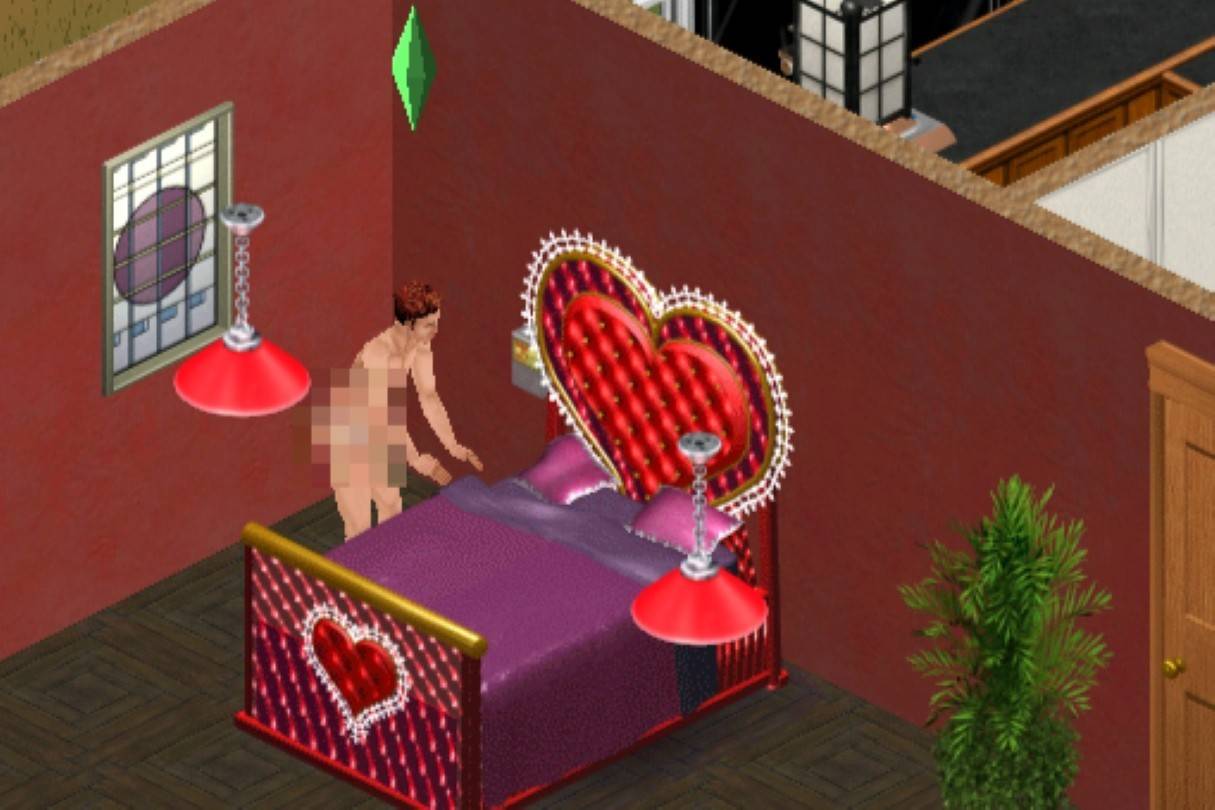 Image: ensigame.com
Image: ensigame.com
WooHoo was portrayed with a surprising level of realism for its time. Before engaging in the act, Sims would undress, and afterward, their reactions varied widely, showing emotions ranging from crying to cheering, laughing, or even disgust.
Fine Dining
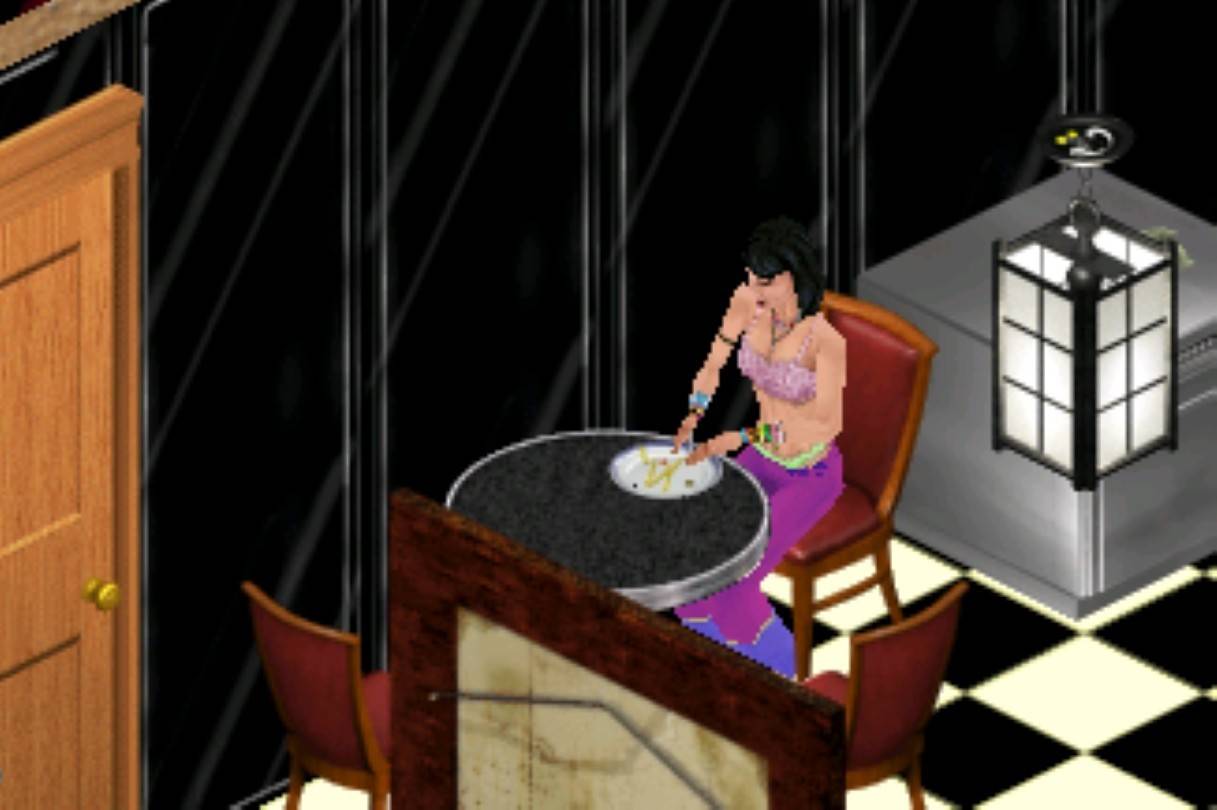 Image: ensigame.com
Image: ensigame.com
Sims would properly use both a knife and a fork while eating, showcasing a level of sophistication that players fondly remember, unlike the more simplified eating animations in later entries.
Thrills and Spills
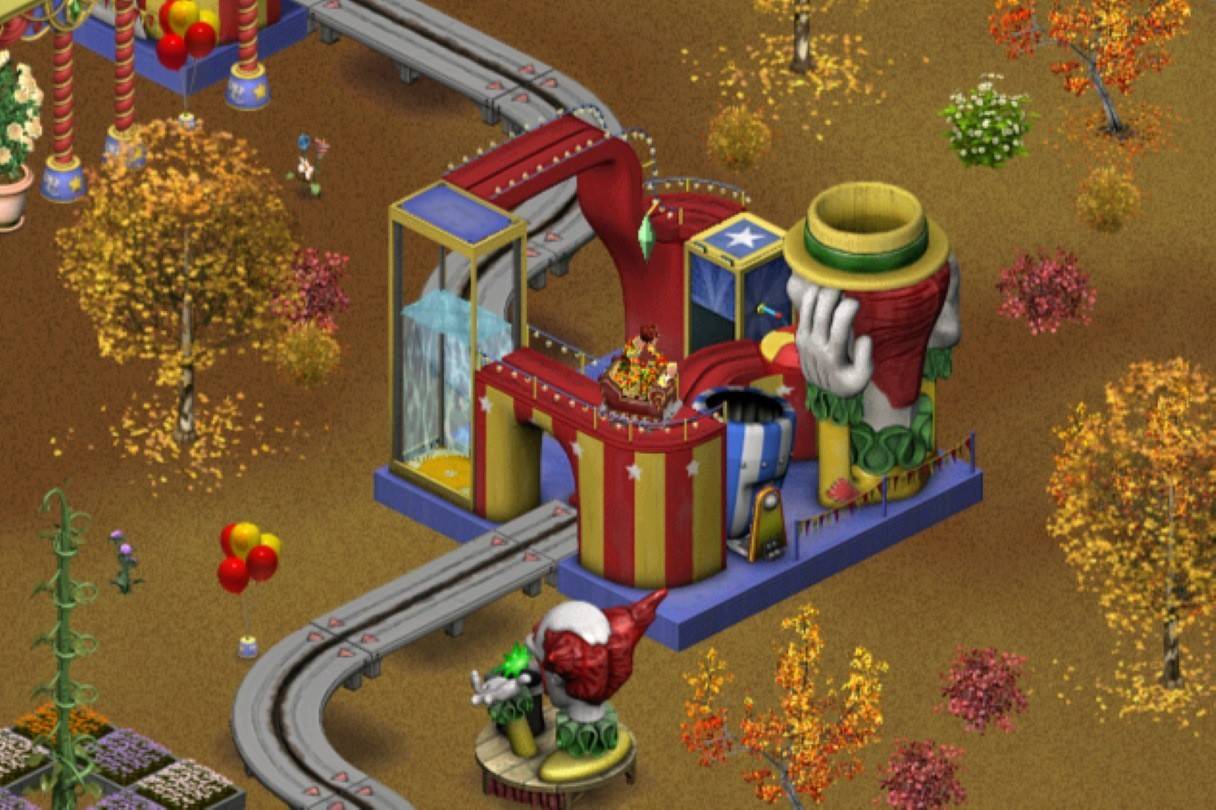 Image: ensigame.com
Image: ensigame.com
Introduced in The Sims: Makin’ Magic, roller coasters became a thrilling entertainment option for Sims. In Magic Town, players could find two distinct roller coasters: one in Clowntastic Land with a vibrant circus theme, and another in Vernon’s Vault with a haunted house aesthetic. Players could also build their own roller coasters on other community lots, adding excitement to any part of their Sims' world.
The Price of Fame
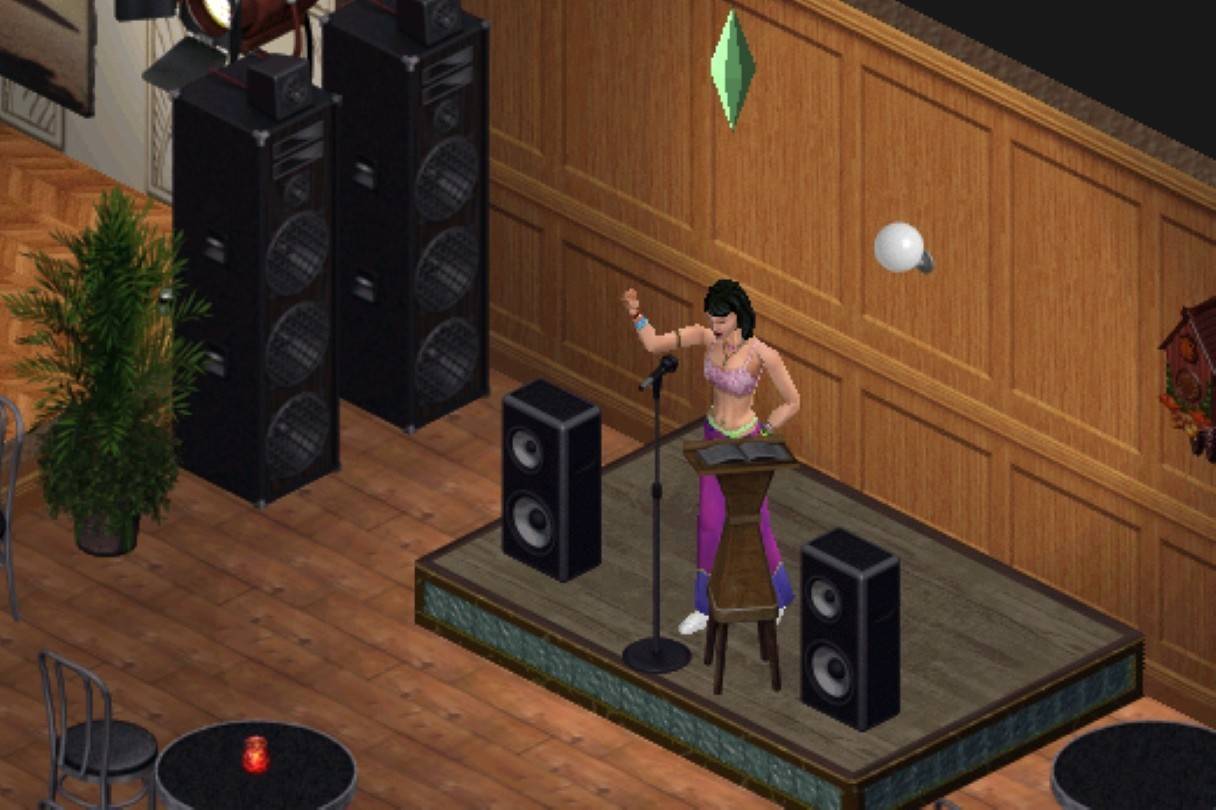 Image: ensigame.com
Image: ensigame.com
In The Sims: Superstar, Sims could pursue stardom by joining the SimCity Talent Agency through the Studio Town tabloid, delivered daily by Nancy the Paper Girl. Fame was measured by a five-star Star Power system, where progress depended on performances in Studio Town. Success in acting, modeling, or singing boosted their ranking, while poor performances or neglecting work could cause their fame to fade. Missing five consecutive days risked being dropped by the agency, highlighting the fleeting nature of fame.
Spellcasting in Makin’ Magic
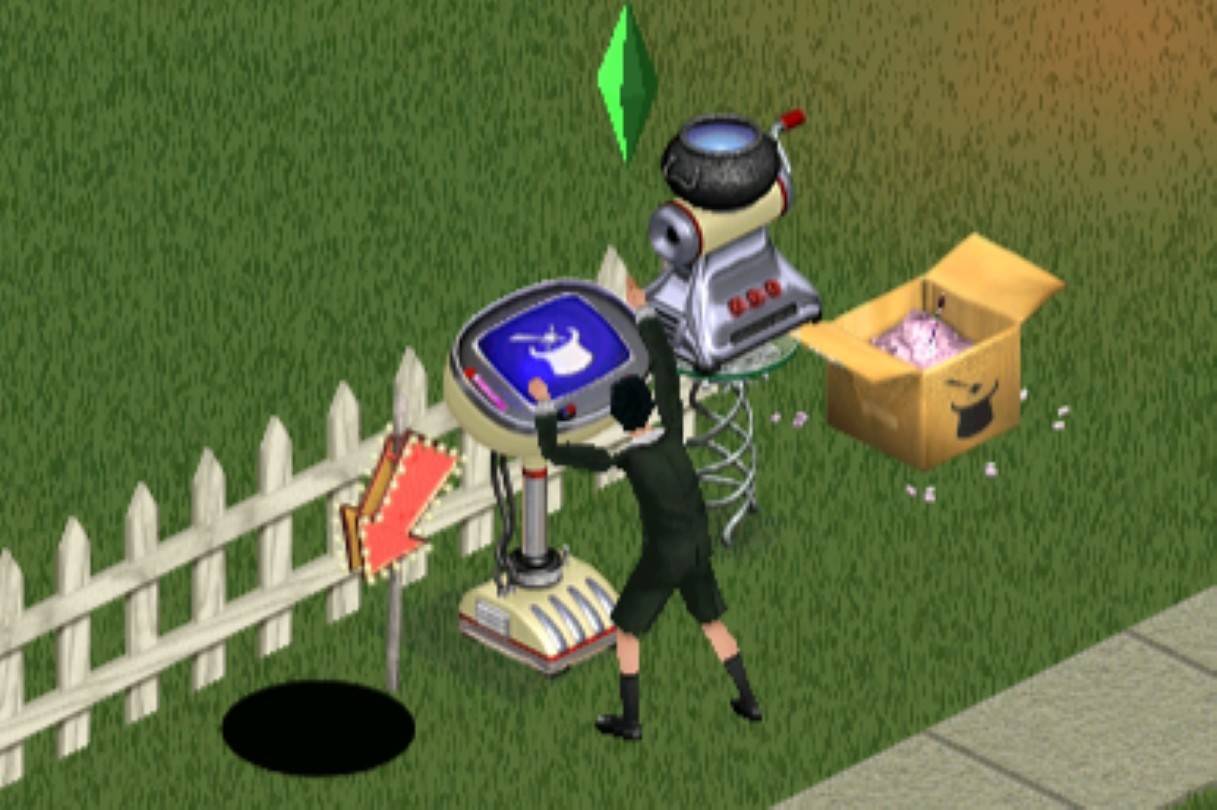 Image: ensigame.com
Image: ensigame.com
The Sims: Makin’ Magic introduced a rich spellcasting system where Sims could craft spells and charms by combining specific ingredients. All magical recipes were documented in The Start Here Spellbook, with distinct spells for adults and children — making The Sims 1 the only entry where kids could become spellcasters.
Singing Under the Stars
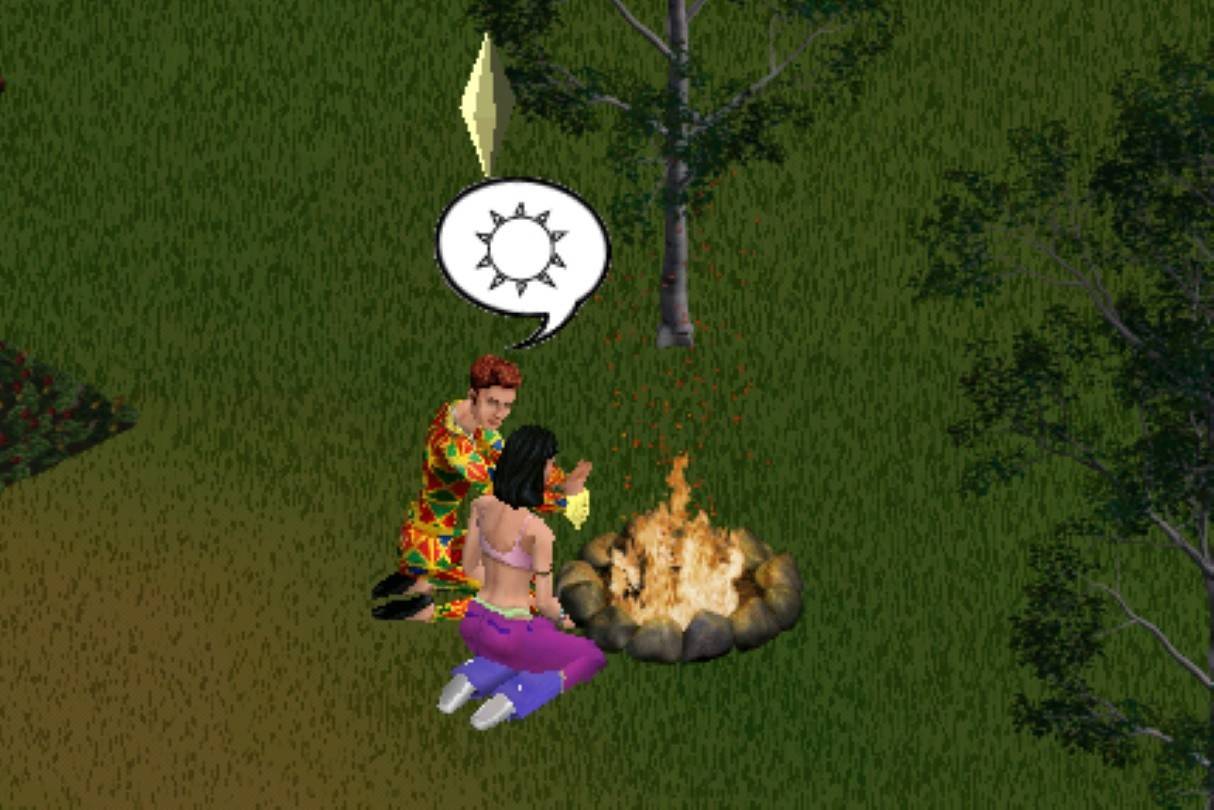 Image: ensigame.com
Image: ensigame.com
Gathered around a crackling fire, Sims could sing folk songs, choosing from three different melodies. These campfire singalongs added a charming social element, bringing Sims together for a cozy and immersive outdoor experience.
The Sims 2
Running a Business
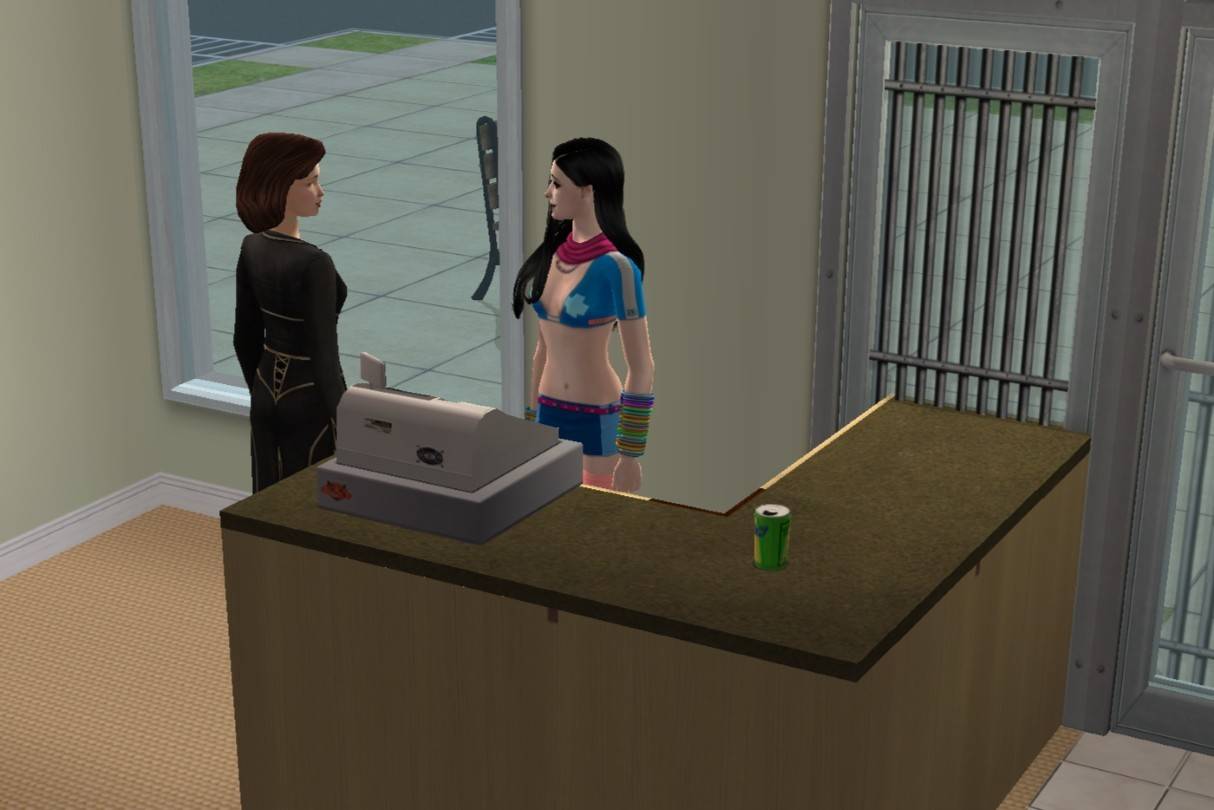 Image: ensigame.com
Image: ensigame.com
For the first time, Sims could become entrepreneurs, opening businesses from their home lot or a dedicated venue. Whether launching a fashion boutique, beauty salon, electronics store, florist, or restaurant, the possibilities were nearly endless. As their venture grew, they could hire employees to craft toys, arrange flowers, sell merchandise, or build robots, though keeping staff motivated was crucial. With the right skills and strategy, Sims could rise from small-time shop owners to business moguls or pursue eccentric innovation.
Also read: 30 best mods for The Sims 2
Higher Education, Higher Rewards
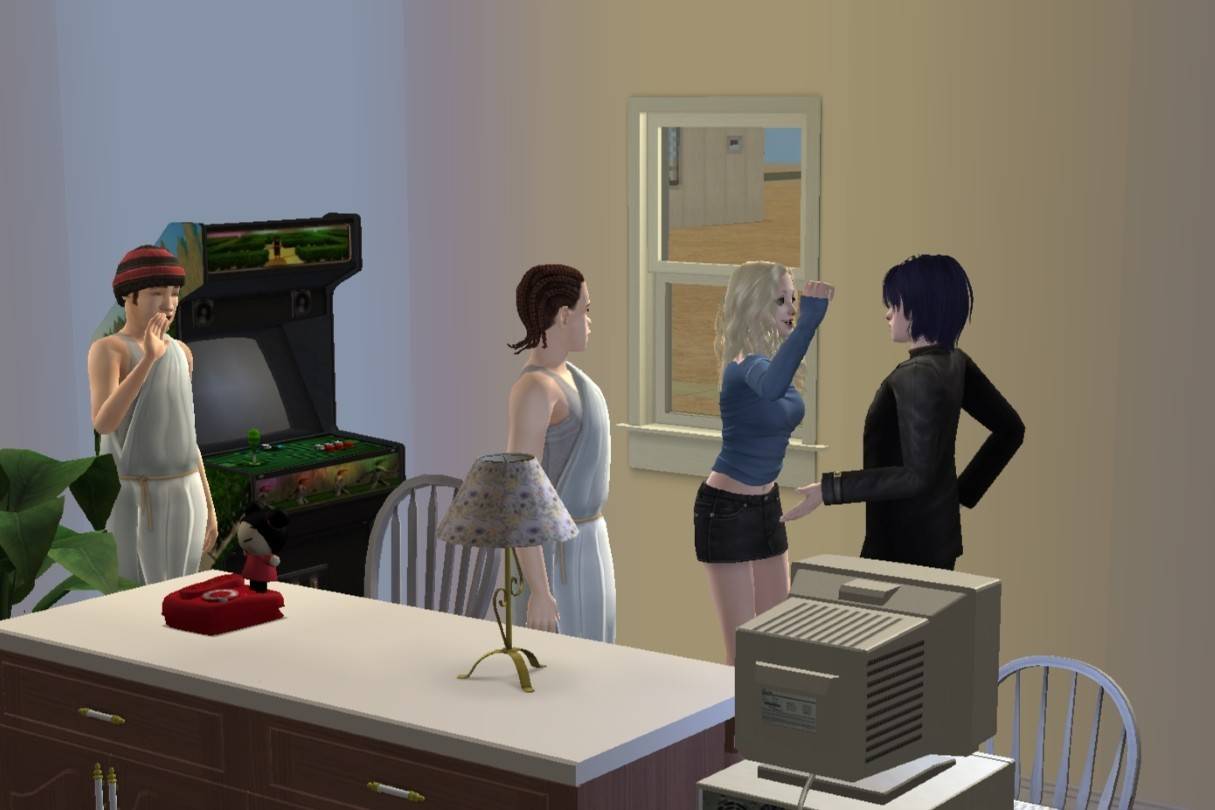 Image: ensigame.com
Image: ensigame.com
With The Sims 2: University, teens could leave home and transition into young adulthood by enrolling in college. Moving to a dedicated university town, they could live in dorms, Greek houses, or private residences if funds allowed. Sims had to balance academics, choosing from ten majors like Psychology, Economics, and Drama, while building new social circles and maintaining old relationships. Graduation unlocked advanced career opportunities, making higher education a gateway to success.
Nightlife
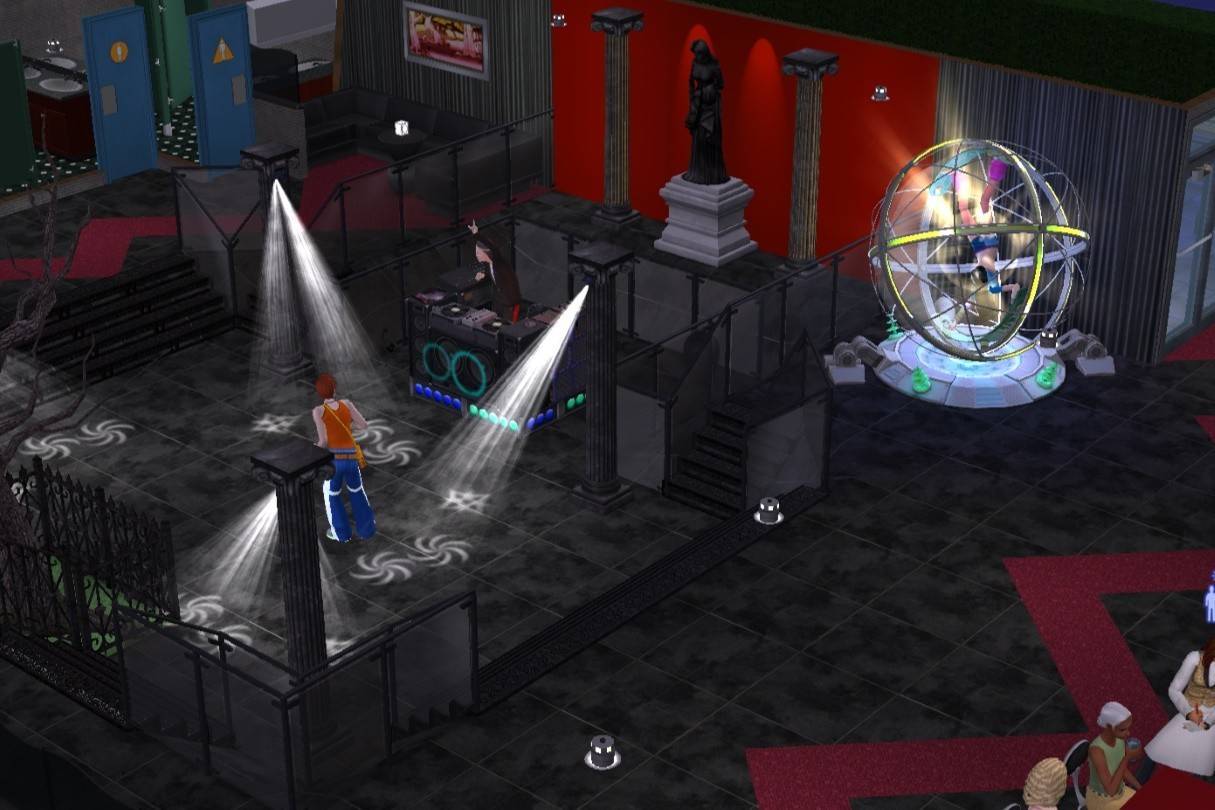 Image: ensigame.com
Image: ensigame.com
This expansion introduced inventories, new social interactions, and over 125 objects. Romantic pursuits became more dynamic, with NPC dates leaving gifts or scathing hate letters based on the evening's outcome. Iconic new characters included DJs, a Gypsy matchmaker, the infamous Mrs. Crumplebottom, and grand vampires.
The Excitement of Apartment Life
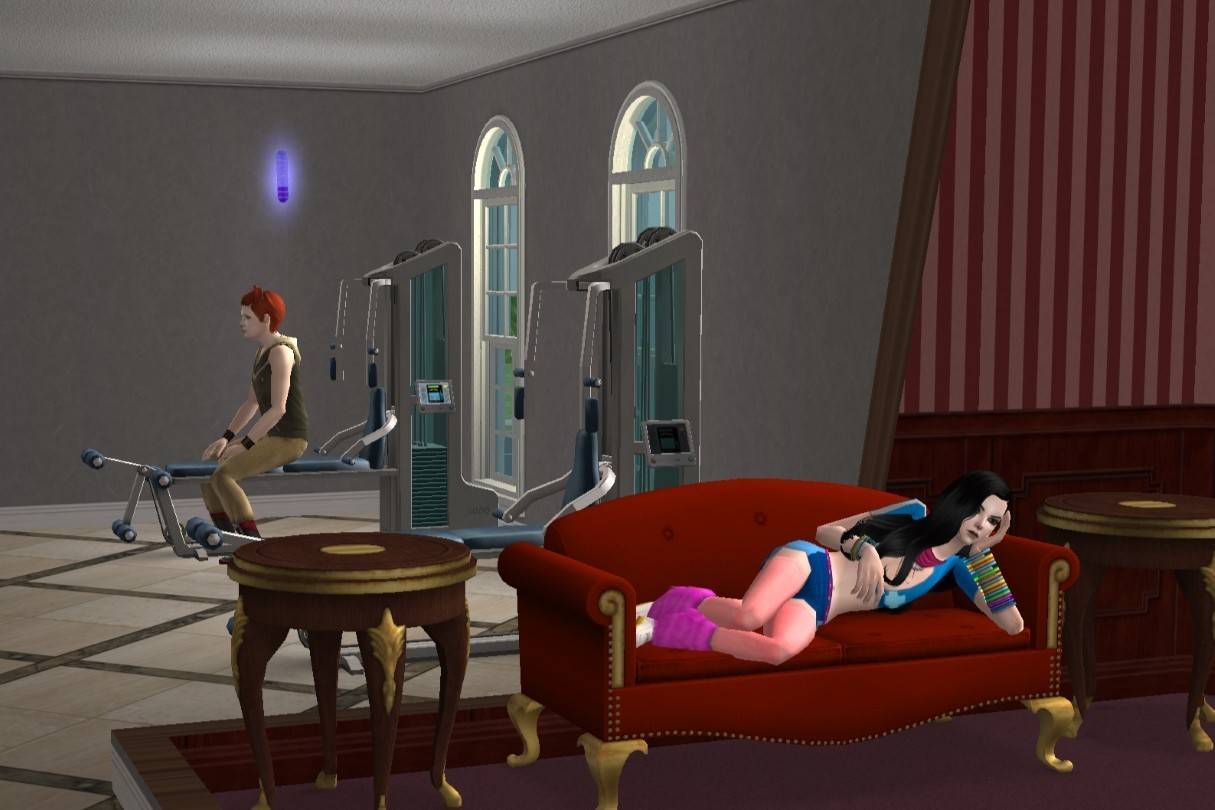 Image: ensigame.com
Image: ensigame.com
As the final expansion for The Sims 2, Apartment Life introduced a dynamic new way to live. Sims could move into bustling apartment buildings, where close quarters led to new friendships, career connections, and romance. Whether raising kids near the local playground, socializing in coffee shops, or learning dance moves in the park, life in the city was full of opportunities. From trendy lofts to luxurious apartments with personal butlers, this expansion brought urban excitement to the game.
Memories That Last, Love That Doesn’t
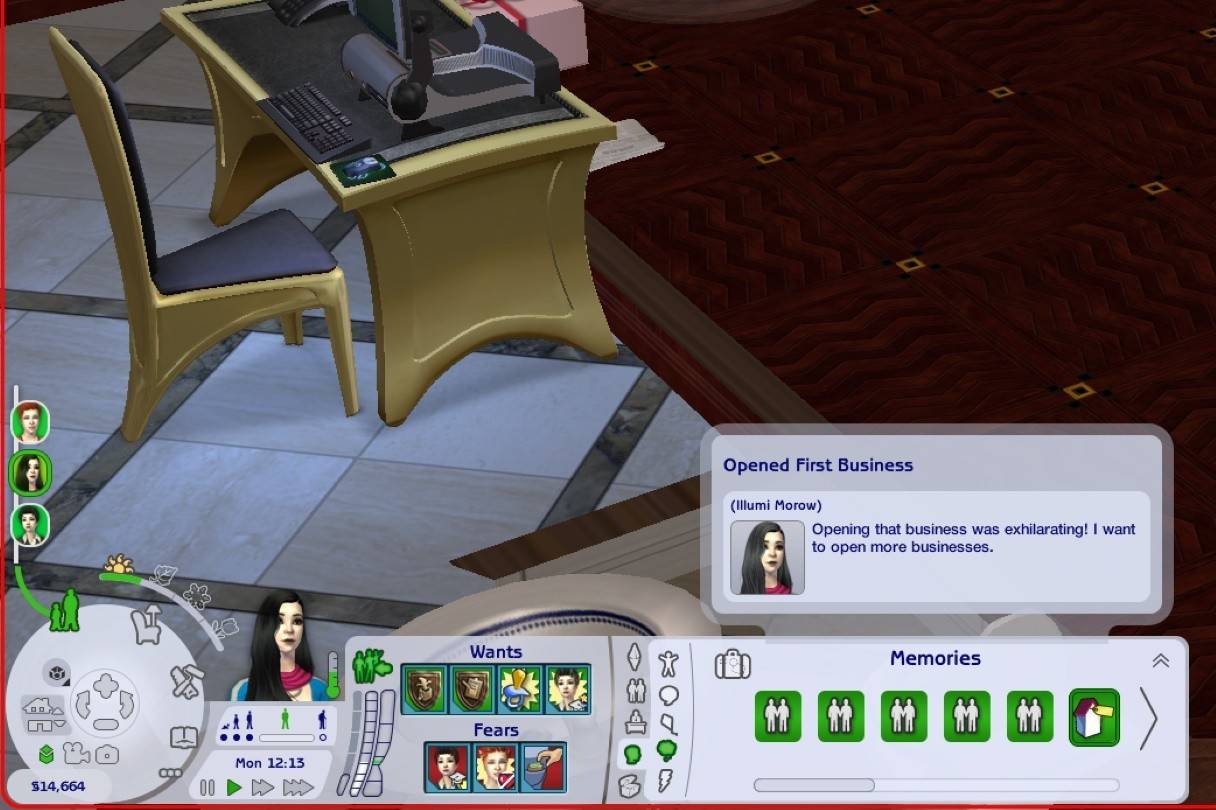 Image: ensigame.com
Image: ensigame.com
The Sims 2 introduced a groundbreaking memory system, allowing Sims to remember major life events — from first kisses to job losses — shaping their personalities and interactions. This part of the franchise also featured unrequited relationships, adding realism and drama. A Sim could develop deep romantic feelings or strong friendships, only to have those emotions go unreciprocated.
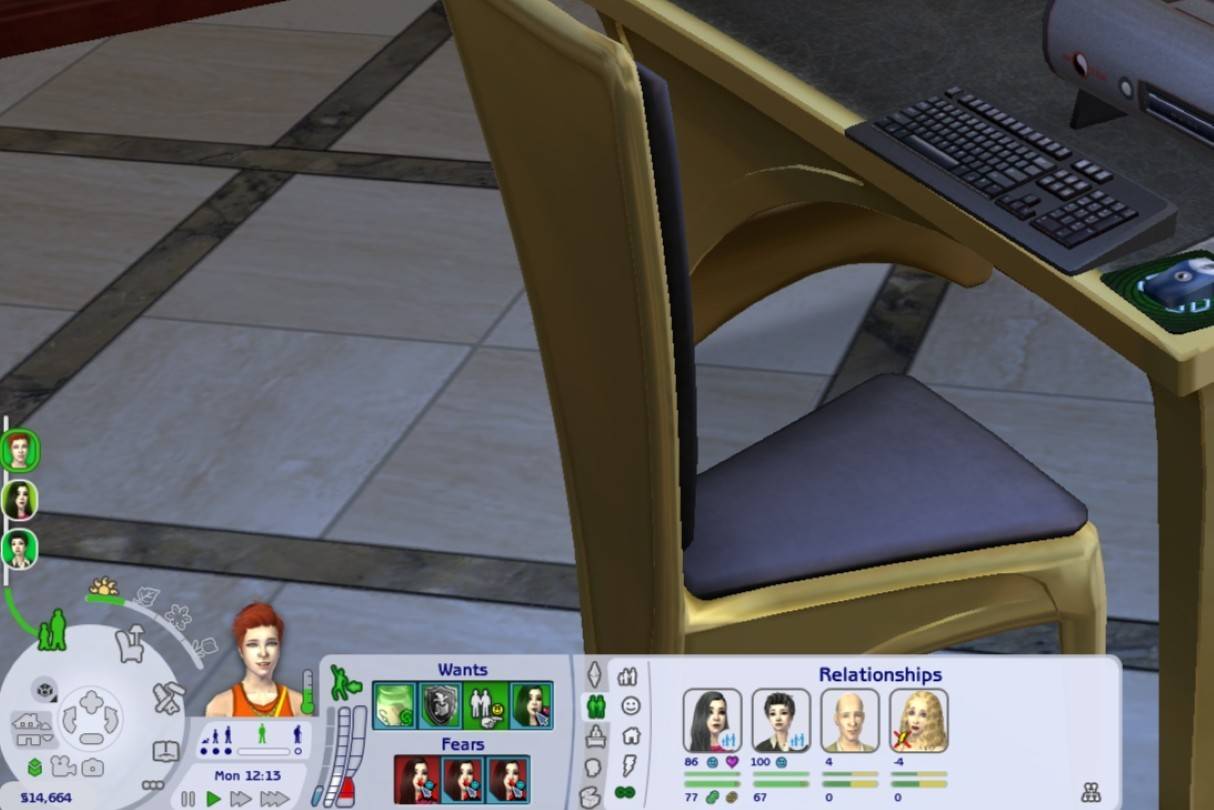 Image: ensigame.com
Image: ensigame.com
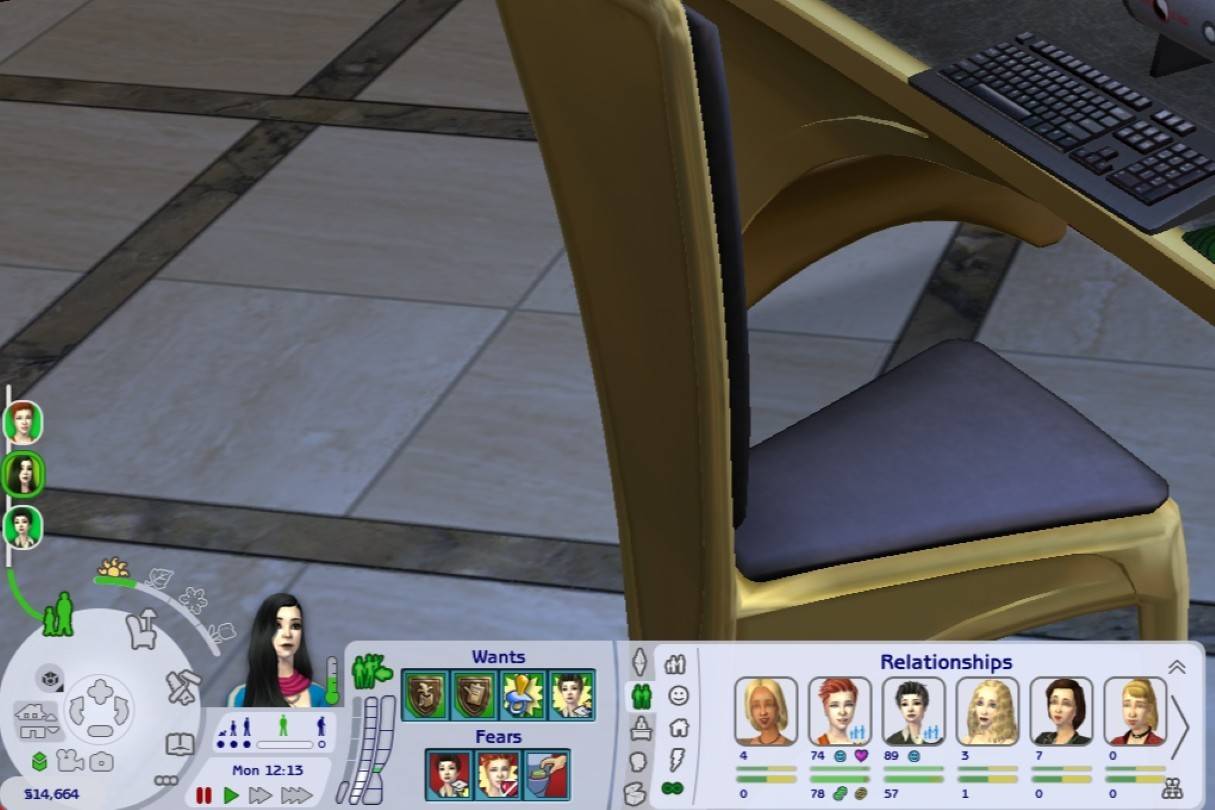 Image: ensigame.com
Image: ensigame.com
Functional Clocks
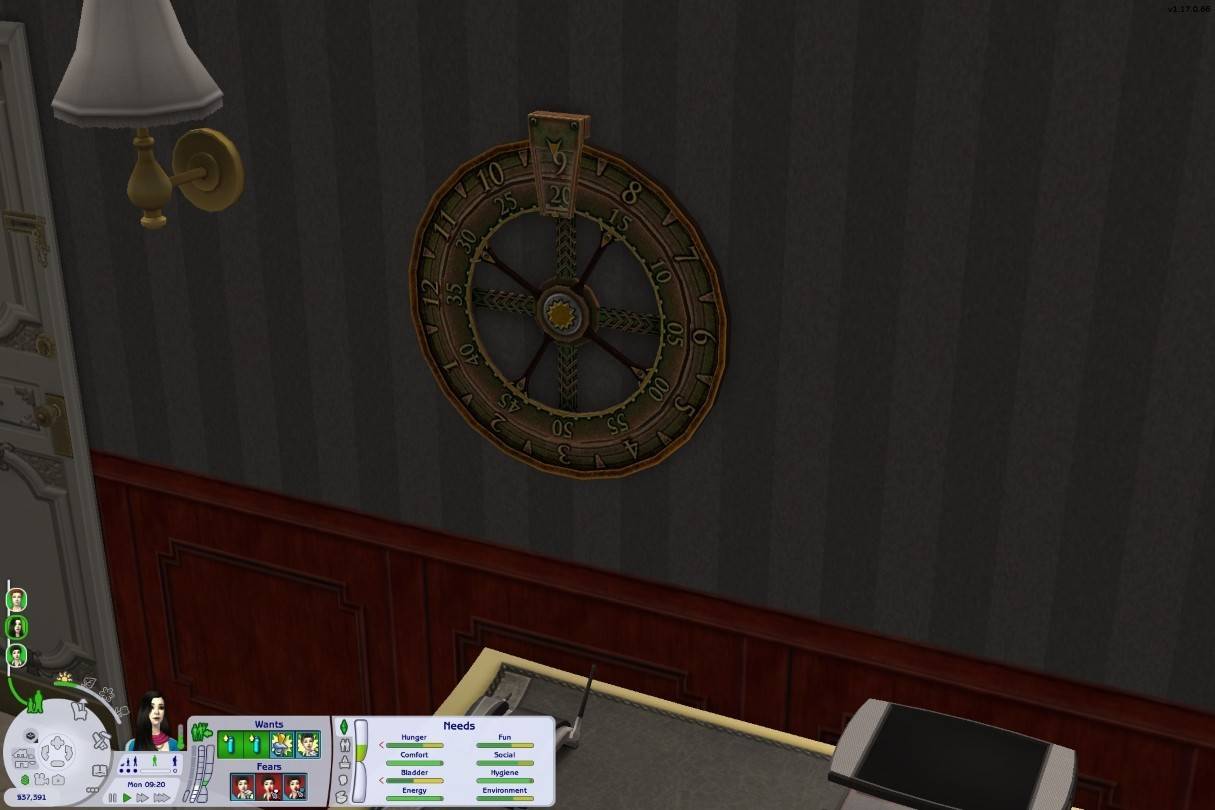 Image: ensigame.com
Image: ensigame.com
Clocks in The Sims 2 served a practical purpose — they displayed the actual in-game time. Whether a classic wall clock or an elegant grandfather clock, each updated in real-time, allowing players to track the hours without relying solely on the interface.
Shop ‘Til You Drop
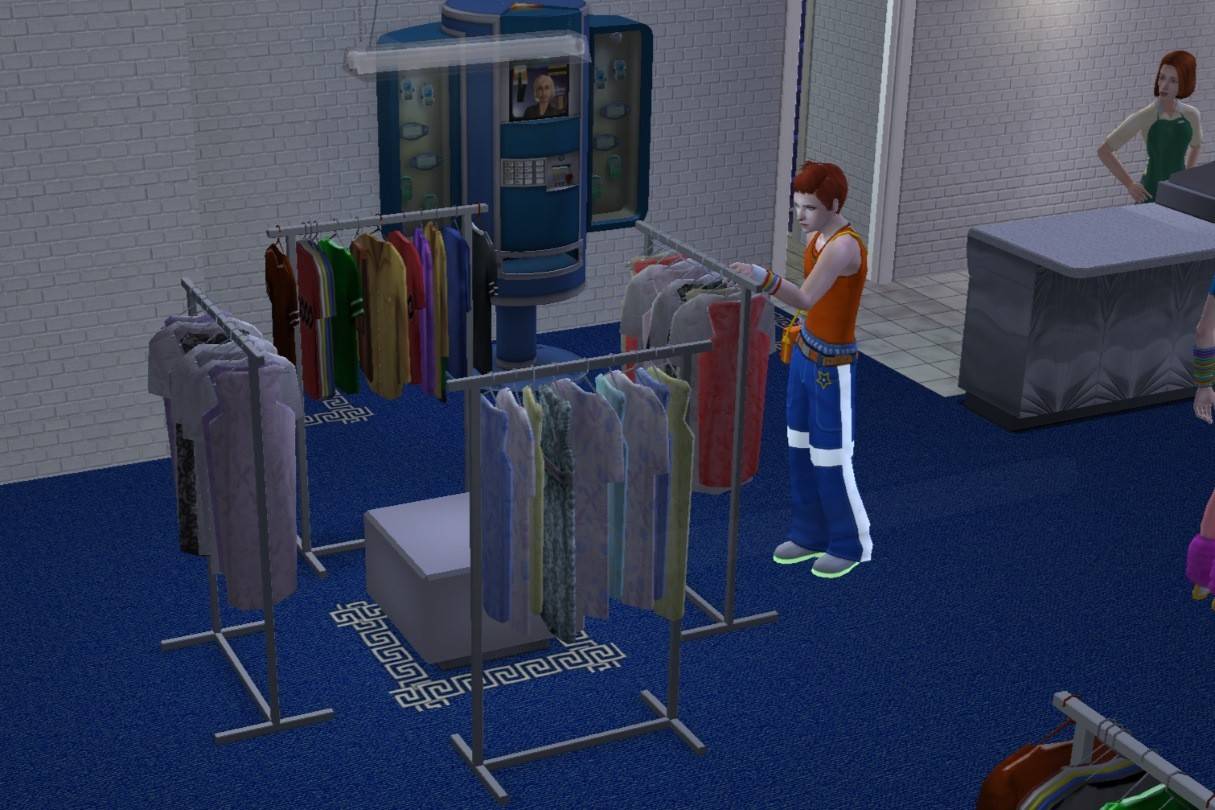 Image: ensigame.com
Image: ensigame.com
Unlike later installments where essentials appeared out of thin air, The Sims 2 required Sims to shop for both food and clothing. Refrigerators didn’t magically stay stocked — Sims had to visit the grocery store or risk running out of ingredients. Similarly, newly aged-up Sims wouldn’t automatically get a fresh wardrobe; they had to purchase new outfits to avoid being stuck in their old, ill-fitting clothes.
Unique NPCs
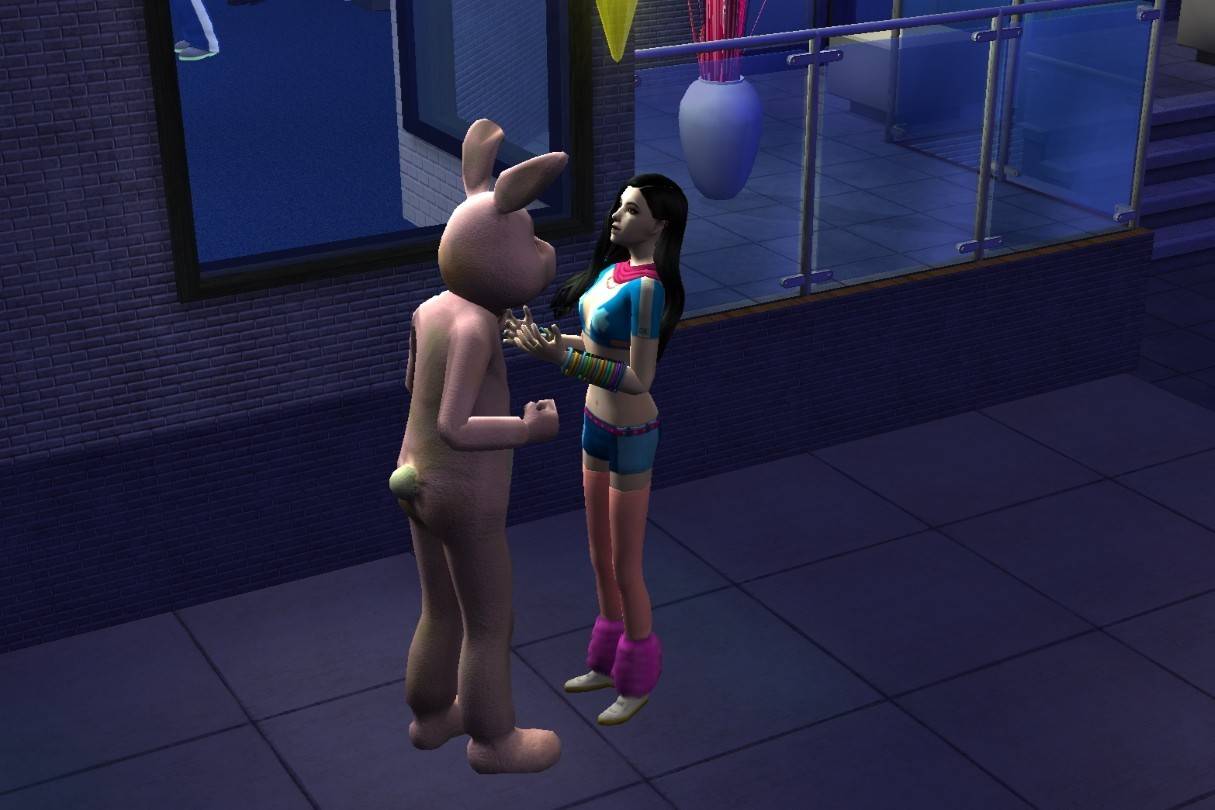 Image: ensigame.com
Image: ensigame.com
The Social Bunny, an oversized, slightly eerie rabbit, would materialize when a Sim’s social needs plummeted, providing much-needed company — real or imagined.
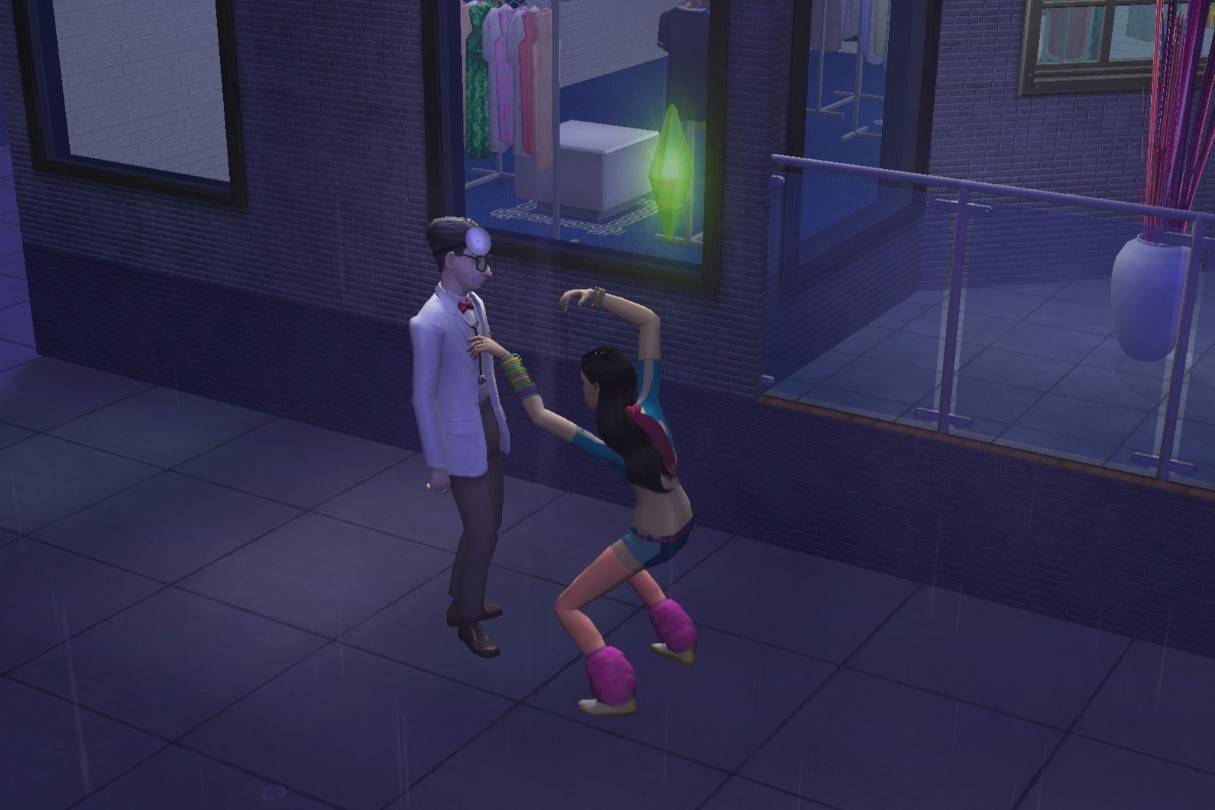 Image: ensigame.com
Image: ensigame.com
Meanwhile, the Therapist would arrive to intervene if a Sim completely lost their grip on reality, experiencing a full-blown breakdown.
Unlocking Hobbies
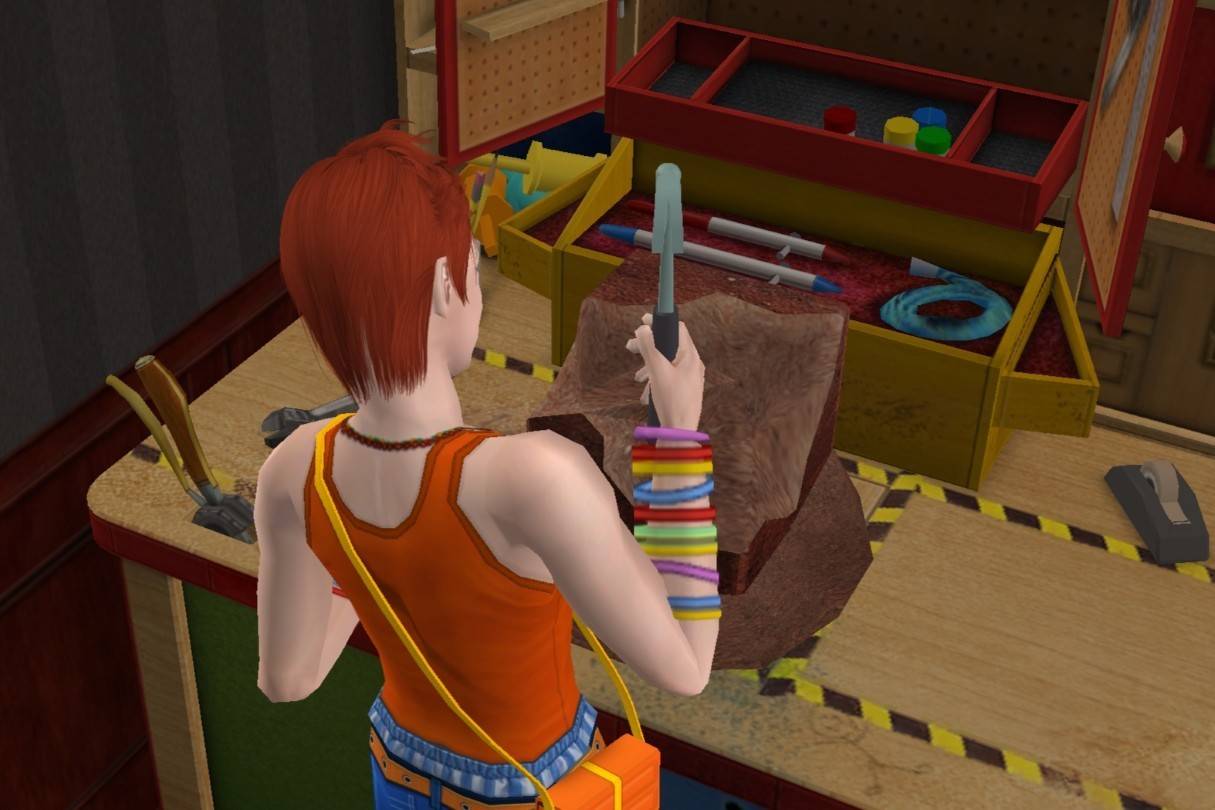 Image: ensigame.com
Image: ensigame.com
With FreeTime, Sims could embrace new hobbies, enriching their lives beyond work and daily routines. From playing football with family to restoring cars with friends or mastering ballet, hobbies fostered skill-building, friendships, and personal fulfillment. Sims could craft pottery, sew clothing, and unlock secret rewards by excelling in their passions. Dedicated hobbyists also gained access to exclusive career opportunities, making leisure time more meaningful.
A Helping Hand
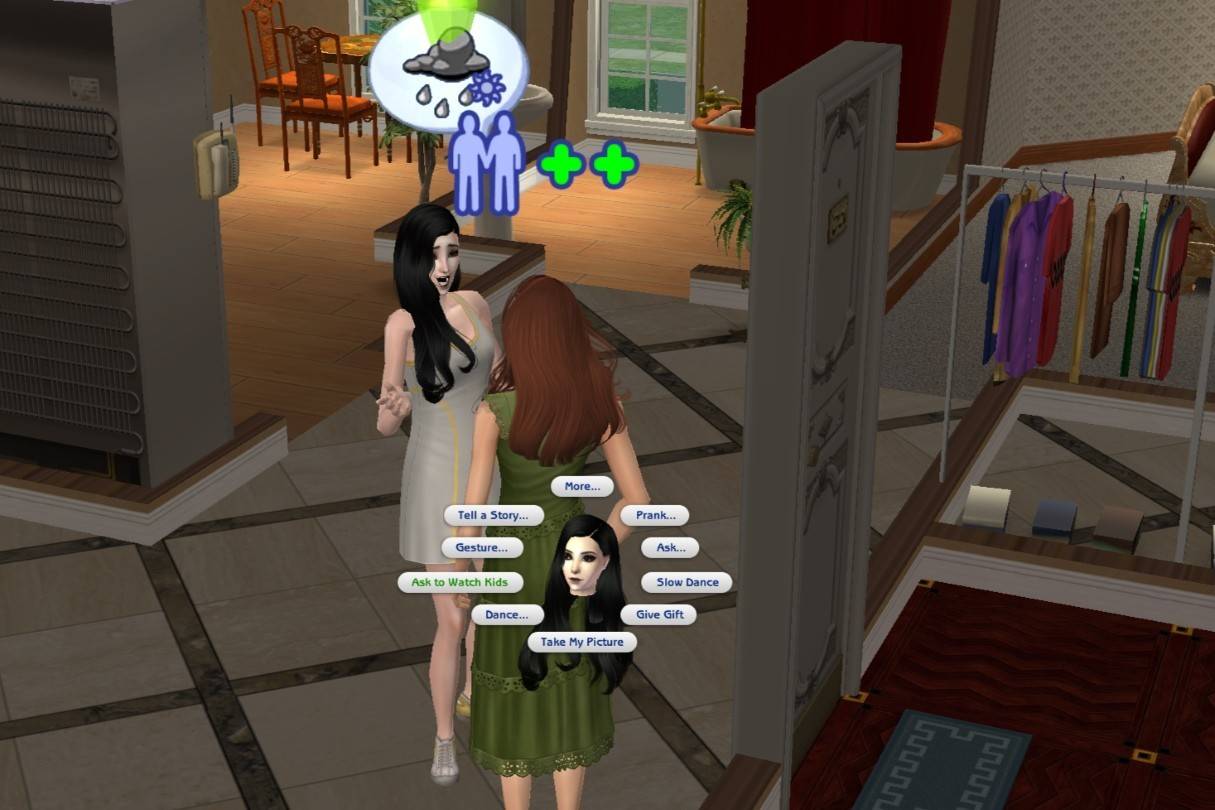 Image: ensigame.com
Image: ensigame.com
If a Sim has a strong enough relationship with a neighbor, they can ask for assistance in caring for their children, offering a more personal alternative to hiring a nanny.
The Sims 1 & 2 were groundbreaking in their depth, creativity, and the wealth of unique features they introduced. While we may never get all of these features back, they remain a nostalgic reminder of the unique experiences that made the Sims franchise so special in its early days.

 Image: ensigame.com
Image: ensigame.com Image: ensigame.com
Image: ensigame.com Image: ensigame.com
Image: ensigame.com Image: ensigame.com
Image: ensigame.com
 Image: ensigame.com
Image: ensigame.com Image: ensigame.com
Image: ensigame.com Image: ensigame.com
Image: ensigame.com Image: ensigame.com
Image: ensigame.com Image: ensigame.com
Image: ensigame.com Image: ensigame.com
Image: ensigame.com Image: ensigame.com
Image: ensigame.com Image: ensigame.com
Image: ensigame.com Image: ensigame.com
Image: ensigame.com Image: ensigame.com
Image: ensigame.com Image: ensigame.com
Image: ensigame.com Image: ensigame.com
Image: ensigame.com Image: ensigame.com
Image: ensigame.com Image: ensigame.com
Image: ensigame.com Image: ensigame.com
Image: ensigame.com Image: ensigame.com
Image: ensigame.com Image: ensigame.com
Image: ensigame.com Image: ensigame.com
Image: ensigame.com Image: ensigame.com
Image: ensigame.com LATEST ARTICLES
LATEST ARTICLES 

